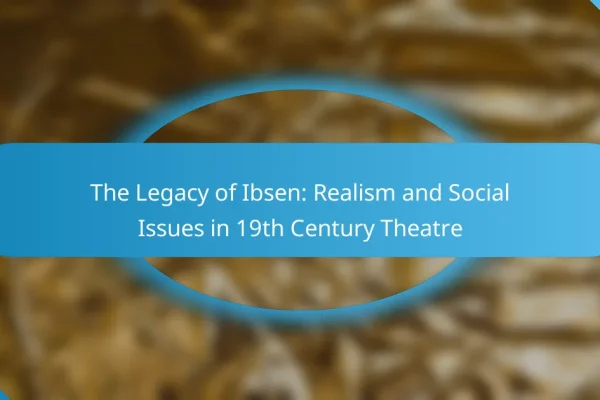
The Role of Women in Theatre History: Contributions, Challenges, and Milestones
The article examines the role of women in theatre history, highlighting their contributions, challenges, and milestones. It outlines how women have served as playwrights, actresses, directors, and producers, beginning with their exclusion in ancient Greece and progressing to their increased visibility during the Renaissance and 19th century. Significant figures, such as playwright George Sand, are…







